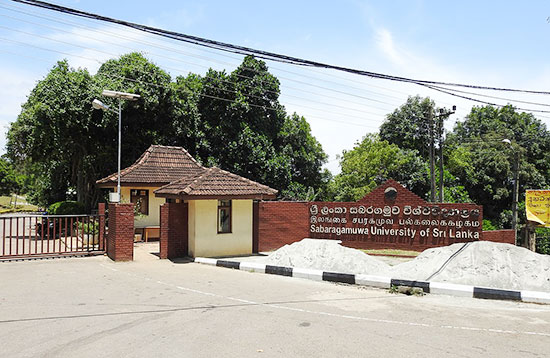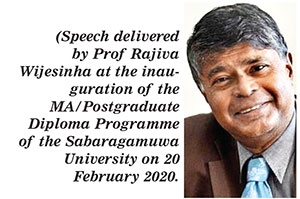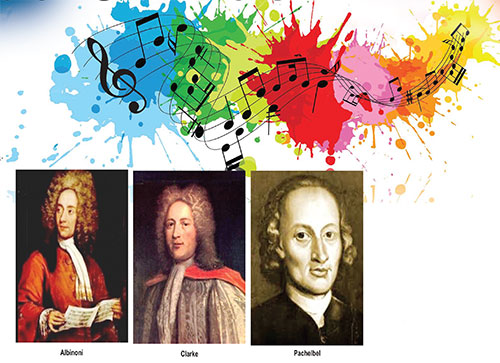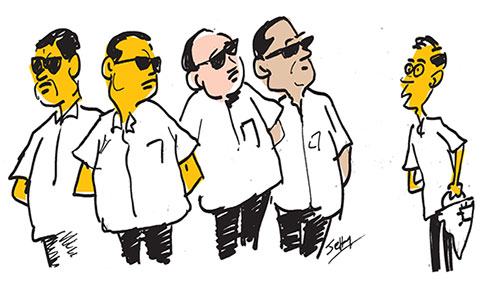Midweek Review
Some roving reflections on the current corona situation

By Dr. B. J. C. Perera
Specialist Consultant Paediatrician
Alexander Pope in “An essay on man” wrote the immortal words, ‘hope springs eternal in the human breast’. His erudite and philosophical reference was to the spectacle of always having hope in one’s own heart. In an analogy to that belief, just up to about a week or two ago, many of our populace hoped, believed and then even trusted that we in our magnificent isle, had taken this crown of thorns that was SARS-CoV-2, the cause of the current pandemic of Corona, by the scruff of its neck. Some were even convinced that we Sri Lankans had got rid of the miserable thing for good. Over a couple of months, we have had hardly any of within-country community transmissions to speak of. They had even forgotten the lock-downs, the curfews and quarantines of not so long ago. With all those, we did so well to contain the spread of the disease. We were beginning to look around the world through rose-tinted glasses and even had a smirk of complacence on our jubilant faces. Even just a couple of weeks ago, many of our people sported a kind of a blasé attitude to the virus. They were beginning to even act in defiance of the health directives. Even the law enforcement authorities started to look the other way. All seemed to be well in this paradise island of plenty. Verily it must be declared that our Sri Lankan people have very short memories, perhaps even ‘minute-memories’, in terms of time.
However, then all hell broke loose. Lo and behold, not to be outdone and defeated in a hurry, the little virus came back with a vengeance. The first time, close to six months ago, we got it under good and firm control. However, the current reality seems to be that the time for reckoning has arrived in this beautiful island of ours; once again perhaps. What appears to have originated from a cluster in a garment factory seems to have spread far and wide. New positive cases are being detected practically by the day and even by the hour. The authorities are running round in circles, and from pillar to post, to take the positives into curative hospital facilities and the contacts are being cared for in quarantine accommodations. The medical authorities continue to shout from the roof-tops that we need to be responsible, for us to be safe. The three-pronged defensive activities of physical social distancing, wearing of face-masks and washing of hands have been stressed, reiterated and promulgated again and again, as definitive steps in the containment process of the virus. These have been the ‘mantra’ that were being recited from practically the beginning of the year. People followed them faithfully for a few months and then perhaps a little bit of the rot set in.
Although the blame for the current wave, as they call it, has been conveniently placed at the doorstep of the garment factory, there is no guarantee that the blight was not surreptitiously lurking around for quite some time before that.
The garment factory girls have been made the scapegoats. Is it really their fault? The workers are made to work in enclosed, air-conditioned, virtually packed surroundings. Their lodgings are over crowded, sometimes with quite a number of them sharing a room.
They are going through all that through necessity and certainly not by their own choice. They are just trying to make an honest living. They are working and living in environments that are the most favourable of conditions for human-to-human transmission of the coronavirus. It is not at all fair to blame them for the current episode of the spread of COVID-19. We should put ourselves in their shoes and see how we feel. Let us not forget that these are the very same workers who worked very hard to produce Personal Protection Equipment (PPE) for the frontline healthcare workers at the beginning of the year when there was a real shortage of those PPEs. They are the very same people who were working ever so hard, up to just a couple of weeks ago, to produce articles for export to bring into the country valuable foreign exchange to keep our economy afloat. The least we can do for them is to look after them in their hour of need. This is neither the time nor the place to subject them to the heart-breaking stigma of even the suggestion that they were the cause of this second catastrophe. In addition, we need to firmly keep in mind that there are thousands more of similar workers in other similar establishments. They too are our people; they too are people of the Sri Lankan race. Perhaps we should really be doing some random testing in all these institutions as well. At the time of writing this article, there were indications from the news broadcasts of the media that the Sri Lankan government was thinking of implementing such a venture with immediate effect. That certainly looks like a significant step in the right direction.
The latest bits of evidence from the Western countries suggest that under certain favourable conditions, the virus could remain viable for even up to 28 days, especially on certain types of surfaces. As to how realistic these findings are in our hot and humid climes we really do not know. Perhaps we desperately need to do some worthwhile research on such aspects. Who knows? Our findings might be totally different.
Committed compliance with the health directives by the Sri Lankan people is perhaps the only proven and tangible way to protect ourselves against contracting the virus. There has to be an unwavering and steadfast effort on the part of the entire population of the country to abide by the rules of the health guidelines. It is quite important to realise these cannot be usefully imposed through punitive and fiscal measures. They have to come from unabridged conviction of the preventive value of the health guidelines; right from the heart of our populace. Now the powers-be have taken action to take legal steps to impose retaliatory punishments to those who act in violation of the health directives. We have very serious doubts as to whether these ventures would have any degree of success. The secret is to get the engagement and empowerment of the people rather than to impose coercive efforts, castigations, penalties and even prison sentences. At the moment, our law-enforcement authorities are up to their necks with work involved with Covid-19 as well as with their usual maintenance of law and order activities. Do the powers-that-be really understand the quantum of additional work in detecting, catching, charging, locking up and prosecuting the miscreants that would bring in an extra, and perhaps fruitless, set of punitive actions that would be a real burden to the police as well as the judicial authorities? I believe that this is definitely not the need of the hour. The secret of success would be to get the people of our land to be partners in this fight against a common enemy. We need to put all our efforts in a collective onslaught and fight this blight as one would do to a common enemy.
There is plenty of evidence from the Western World of the absolute folly of not heeding the health directives. They, the covidiots of Europe and America are talking of human rights, the freedom to make choices and the democratic right to ignore the medical advice and the ass’s liberty to go their own way. They totally disregard social distancing, freely congregate in crowds, have parties, go around in hordes to the beach, and generally do everything that should not be undertaken during a pandemic. Their stupidity is unbelievable. They are supposed to be people from developed countries with intelligence well above lesser mortals. The end result is there for all to see; hundreds of thousands contracting the disease, some very ill people crowding their hospitals which are bursting at the seams and thousands dying of Covid-19. In some of those countries, the affected patients have to remain at home till they are really ill, and perhaps be at death’s door, before they could be admitted to hospital. All these could be used most effectively to convince our populace of the folly of disregarding medical advice. At the moment they are an extremely frightened lot. They would be most receptive to reason, coupled with all efforts being made to show them the problems faced by some of the Western nations.
This is not the time for opportunistic people of this island to engage in a blame game. This includes some of the so-called servants of the people who would gleefully start pointing accusing fingers. This is most definitely not the time to try and make cheap gains in the political sphere. Let us firmly resolve to learn from some of the blatant mistakes and errors of judgement made by the Western world. We should not put our guard down till this common enemy is completely defeated. It is definitely the time for all of us, sans race, caste, creed and wealth, to put our collective shoulder to the wheel to ensure that we bounce back from this latest calamity. We need to fight this virus together and fight as one. Divided, we will fail; but united, we will definitely win.
Viva Sri Lanka!
- News Advertiesment
See Kapruka’s top selling online shopping categories such as Toys, Grocery, Flowers, Birthday Cakes, Fruits, Chocolates, Clothing and Electronics. Also see Kapruka’s unique online services such as Money Remittence,News, Courier/Delivery, Food Delivery and over 700 top brands. Also get products from Amazon & Ebay via Kapruka Gloabal Shop into Sri Lanka.
Midweek Review
‘Professor of English Language Teaching’

It is a pleasure to be here today, when the University resumes postgraduate work in English and Education which we first embarked on over 20 years ago. The presence of a Professor on English Language Teaching from Kelaniya makes clear that the concept has now been mainstreamed, which is a cause for great satisfaction.
 Twenty years ago, this was not the case. Our initiative was looked at askance, as indeed was the initiative which Prof. Arjuna Aluwihare engaged in as UGC Chairman to make degrees in English more widely available. Those were the days in which the three established Departments of English in the University system, at Peradeniya and Kelaniya and Colombo, were unbelievably conservative. Their contempt for his efforts made him turn to Sri Jayewardenepura, which did not even have a Department of English then and only offered it as one amongst three subjects for a General Degree.
Twenty years ago, this was not the case. Our initiative was looked at askance, as indeed was the initiative which Prof. Arjuna Aluwihare engaged in as UGC Chairman to make degrees in English more widely available. Those were the days in which the three established Departments of English in the University system, at Peradeniya and Kelaniya and Colombo, were unbelievably conservative. Their contempt for his efforts made him turn to Sri Jayewardenepura, which did not even have a Department of English then and only offered it as one amongst three subjects for a General Degree.
Ironically, the most dogmatic defence of this exclusivity came from Colombo, where the pioneer in English teaching had been Prof. Chitra Wickramasuriya, whose expertise was, in fact, in English teaching. But her successor, when I tried to suggest reforms, told me proudly that their graduates could go on to do postgraduate degrees at Cambridge. I suppose that, for generations brought up on idolization of E. F. C. Ludowyke, that was the acme of intellectual achievement.
I should note that the sort of idealization of Ludowyke, the then academic establishment engaged in was unfair to a very broadminded man. It was the Kelaniya establishment that claimed that he ‘maintained high standards, but was rarefied and Eurocentric and had an inhibiting effect on creative writing’. This was quite preposterous coming from someone who removed all Sri Lankan and other post-colonial writing from an Advanced Level English syllabus. That syllabus, I should mention, began with Jacobean poetry about the cherry-cheeked charms of Englishwomen. And such a characterization of Ludowyke totally ignored his roots in Sri Lanka, his work in drama which helped Sarachchandra so much, and his writing including ‘Those Long Afternoons’, which I am delighted that a former Sabaragamuwa student, C K Jayanetti, hopes to resurrect.
I have gone at some length into the situation in the nineties because I notice that your syllabus includes in the very first semester study of ‘Paradigms in Sri Lankan English Education’. This is an excellent idea, something which we did not have in our long-ago syllabus. But that was perhaps understandable since there was little to study then except a history of increasing exclusivity, and a betrayal of the excuse for getting the additional funding those English Departments received. They claimed to be developing teachers of English for the nation; complete nonsense, since those who were knowledgeable about cherries ripening in a face were not likely to move to rural areas in Sri Lanka to teach English. It was left to the products of Aluwihare’s initiative to undertake that task.
Another absurdity of that period, which seems so far away now, was resistance to training for teaching within the university system. When I restarted English medium education in the state system in Sri Lanka, in 2001, and realized what an uphill struggle it was to find competent teachers, I wrote to all the universities asking that they introduce modules in teacher training. I met condign refusal from all except, I should note with continuing gratitude, from the University of Sri Jayewardenepura, where Paru Nagasunderam introduced it for the external degree. When I started that degree, I had taken a leaf out of Kelaniya’s book and, in addition to English Literature and English Language, taught as two separate subjects given the language development needs of students, made the third subject Classics. But in time I realized that was not at all useful. Thankfully, that left a hole which ELT filled admirably at the turn of the century.
The title of your keynote speaker today, Professor of English Language Teaching, is clear evidence of how far we have come from those distant days, and how thankful we should be that a new generation of practical academics such as her and Dinali Fernando at Kelaniya, Chitra Jayatilleke and Madhubhashini Ratnayake at USJP and the lively lot at the Postgraduate Institute of English at the Open University are now making the running. I hope Sabaragamuwa under its current team will once again take its former place at the forefront of innovation.
To get back to your curriculum, I have been asked to teach for the paper on Advanced Reading and Writing in English. I worried about this at first since it is a very long time since I have taught, and I feel the old energy and enthusiasm are rapidly fading. But having seen the care with which the syllabus has been designed, I thought I should try to revive my flagging capabilities.
However, I have suggested that the university prescribe a textbook for this course since I think it is essential, if the rounded reading prescribed is to be done, that students should have ready access to a range of material. One of the reasons I began while at the British Council an intensive programme of publications was that students did not read round their texts. If a novel was prescribed, they read that novel and nothing more. If particular poems were prescribed, they read those poems and nothing more. This was especially damaging in the latter case since the more one read of any poet the more one understood what he was expressing.
Though given the short notice I could not prepare anything, I remembered a series of school textbooks I had been asked to prepare about 15 years ago by International Book House for what were termed international schools offering the local syllabus in the English medium. Obviously, the appalling textbooks produced by the Ministry of Education in those days for the rather primitive English syllabus were unsuitable for students with more advanced English. So, I put together more sophisticated readers which proved popular. I was heartened too by a very positive review of these by Dinali Fernando, now at Kelaniya, whose approach to students has always been both sympathetic and practical.
I hope then that, in addition to the texts from the book that I will discuss, students will read other texts in the book. In addition to poetry and fiction the book has texts on politics and history and law and international relations, about which one would hope postgraduate students would want some basic understanding.
Similarly, I do hope whoever teaches about Paradigms in English Education will prescribe a textbook so that students will understand more about what has been going on. Unfortunately, there has been little published about this but at least some students will I think benefit from my book on English and Education: In Search of Equity and Excellence? which Godage & Bros brought out in 2016. And then there was Lakmahal Justified: Taking English to the People, which came out in 2018, though that covers other topics too and only particular chapters will be relevant.
The former book is bulky but I believe it is entertaining as well. So, to conclude I will quote from it, to show what should not be done in Education and English. For instance, it is heartening that you are concerned with ‘social integration, co-existence and intercultural harmony’ and that you want to encourage ‘sensitivity towards different cultural and linguistic identities’. But for heaven’s sake do not do it as the NIE did several years ago in exaggerating differences. In those dark days, they produced textbooks which declared that ‘Muslims are better known as heavy eaters and have introduced many tasty dishes to the country. Watalappam and Buriani are some of these dishes. A distinguished feature of the Muslims is that they sit on the floor and eat food from a single plate to show their brotherhood. They eat string hoppers and hoppers for breakfast. They have rice and curry for lunch and dinner.’ The Sinhalese have ‘three hearty meals a day’ and ‘The ladies wear the saree with a difference and it is called the Kandyan saree’. Conversely, the Tamils ‘who live mainly in the northern and eastern provinces … speak the Tamil language with a heavy accent’ and ‘are a close-knit group with a heavy cultural background’’.
And for heaven’s sake do not train teachers by telling them that ‘Still the traditional ‘Transmission’ and the ‘Transaction’ roles are prevalent in the classroom. Due to the adverse standard of the school leavers, it has become necessary to develop the learning-teaching process. In the ‘Transmission’ role, the student is considered as someone who does not know anything and the teacher transmits knowledge to him or her. This inhibits the development of the student.
In the ‘Transaction’ role, the dialogue that the teacher starts with the students is the initial stage of this (whatever this might be). Thereafter, from the teacher to the class and from the class to the teacher, ideas flow and interaction between student-student too starts afterwards and turns into a dialogue. From known to unknown, simple to complex are initiated and for this to happen, the teacher starts questioning.’
And while avoiding such tedious jargon, please make sure their command of the language is better than to produce sentences such as these, or what was seen in an English text, again thankfully several years ago:
Read the story …
Hello! We are going to the zoo. “Do you like to join us” asked Sylvia. “Sorry, I can’t I’m going to the library now. Anyway, have a nice time” bye.
So Syliva went to the zoo with her parents. At the entrance her father bought tickets. First, they went to see the monkeys
She looked at a monkey. It made a funny face and started swinging Sylvia shouted: “He is swinging look now it is hanging from its tail its marvellous”
“Monkey usually do that’
I do hope your students will not hang from their tails as these monkeys do.
Midweek Review
Little known composers of classical super-hits

By Satyajith Andradi
Quite understandably, the world of classical music is dominated by the brand images of great composers. It is their compositions that we very often hear. Further, it is their life histories that we get to know. In fact, loads of information associated with great names starting with Beethoven, Bach and Mozart has become second nature to classical music aficionados. The classical music industry, comprising impresarios, music publishers, record companies, broadcasters, critics, and scholars, not to mention composers and performers, is largely responsible for this. However, it so happens that classical music lovers are from time to time pleasantly struck by the irresistible charm and beauty of classical pieces, the origins of which are little known, if not through and through obscure. Intriguingly, most of these musical gems happen to be classical super – hits. This article attempts to present some of these famous pieces and their little-known composers.
Pachelbel’s Canon in D
The highly popular piece known as Pachelbel’s Canon in D constitutes the first part of Johann Pachelbel’s ‘Canon and Gigue in D major for three violins and basso continuo’. The second part of the work, namely the gigue, is rarely performed. Pachelbel was a German organist and composer. He was born in Nuremburg in 1653, and was held in high esteem during his life time. He held many important musical posts including that of organist of the famed St Stephen’s Cathedral in Vienna. He was the teacher of Bach’s elder brother Johann Christoph. Bach held Pachelbel in high regard, and used his compositions as models during his formative years as a composer. Pachelbel died in Nuremburg in 1706.
Pachelbel’s Canon in D is an intricate piece of contrapuntal music. The melodic phrases played by one voice are strictly imitated by the other voices. Whilst the basso continuo constitutes a basso ostinato, the other three voices subject the original tune to tasteful variation. Although the canon was written for three violins and continuo, its immense popularity has resulted in the adoption of the piece to numerous other combinations of instruments. The music is intensely soothing and uplifting. Understandingly, it is widely played at joyous functions such as weddings.
Jeremiah Clarke’s Trumpet Voluntary
The hugely popular piece known as ‘Jeremiah Clarke’s Trumpet Voluntary’ appeared originally as ‘ The Prince of Denmark’s March’ in Jeremiah Clarke’s book ‘ Choice lessons for the Harpsichord and Spinet’, which was published in 1700 ( Michael Kennedy; Oxford Dictionary of Music ). Sometimes, it has also been erroneously attributed to England’s greatest composer Henry Purcell (1659 – 1695 ) and called ‘Purcell’s Trumpet Voluntary (Percy A. Scholes ; Oxford Companion to Music). This brilliant composition is often played at joyous occasions such as weddings and graduation ceremonies. Needless to say, it is a piece of processional music, par excellence. As its name suggests, it is probably best suited for solo trumpet and organ. However, it is often played for different combinations of instruments, with or without solo trumpet. It was composed by the English composer and organist Jeremiah Clarke.
Jeremiah Clarke was born in London in 1670. He was, like his elder contemporary Pachelbel, a musician of great repute during his time, and held important musical posts. He was the organist of London’s St. Paul’s Cathedral and the composer of the Theatre Royal. He died in London in 1707 due to self – inflicted gun – shot injuries, supposedly resulting from a failed love affair.
Albinoni’s Adagio
The full title of the hugely famous piece known as ‘Albinoni’s Adagio’ is ‘Adagio for organ and strings in G minor’. However, due to its enormous popularity, the piece has been arranged for numerous combinations of instruments. It is also rendered as an organ solo. The composition, which epitomizes pathos, is structured as a chaconne with a brooding bass, which reminds of the inevitability and ever presence of death. Nonetheless, there is no trace of despondency in this ethereal music. On the contrary, its intense euphony transcends the feeling of death and calms the soul. The composition has been attributed to the Italian composer Tomaso Albinoni (1671 – 1750), who was a contemporary of Bach and Handel. However, the authorship of the work is shrouded in mystery. Michael Kennedy notes: “The popular Adagio for organ and strings in G minor owes very little to Albinoni, having been constructed from a MS fragment by the twentieth century Italian musicologist Remo Giazotto, whose copyright it is” (Michael Kennedy; Oxford Dictionary of Music).
Boccherini’s Minuet
The classical super-hit known as ‘Boccherini’s Minuet’ is quite different from ‘Albinoni’s Adagio’. It is a short piece of absolutely delightful music. It was composed by the Italian cellist and composer Luigi Boccherini. It belongs to his string quintet in E major, Op. 13, No. 5. However, due to its immense popularity, the minuet is performed on different combinations of instruments.
Boccherini was born in Lucca in 1743. He was a contemporary of Haydn and Mozart, and an elder contemporary of Beethoven. He was a prolific composer. His music shows considerable affinity to that of Haydn. He lived in Madrid for a considerable part of his life, and was attached to the royal court of Spain as a chamber composer. Boccherini died in poverty in Madrid in 1805.
Like numerous other souls, I have found immense joy by listening to popular classical pieces like Pachelbel’s Canon in D, Jeremiah Clarke’s Trumpet Voluntary, Albinoni’s Adagio and Boccherini’s Minuet. They have often helped me to unwind and get over the stresses of daily life. Intriguingly, such music has also made me wonder how our world would have been if the likes of Bach, Handel, Haydn, Mozart, Beethoven, and Schubert had never lived. Surely, the world would have been immeasurably poorer without them. However, in all probability, we would have still had Pachelbel’s Canon in D, Jeremiah Clarke’s Trumpet Voluntary, Albinoni’s Adagio, and Boccherini’s Minuet, to cheer us up and uplift our spirits.
Midweek Review
The Tax Payer and the Tough

By Lynn Ockersz
The tax owed by him to Caesar,
Leaves our retiree aghast…
How is he to foot this bill,
With the few rupees,
He has scraped together over the months,
In a shrinking savings account,
While the fires in his crumbling hearth,
Come to a sputtering halt?
But in the suave villa next door,
Stands a hulk in shiny black and white,
Over a Member of the August House,
Keeping an eagle eye,
Lest the Rep of great renown,
Be besieged by petitioners,
Crying out for respite,
From worries in a hand-to-mouth life,
But this thought our retiree horrifies:
Aren’t his hard-earned rupees,
Merely fattening Caesar and his cohorts?









